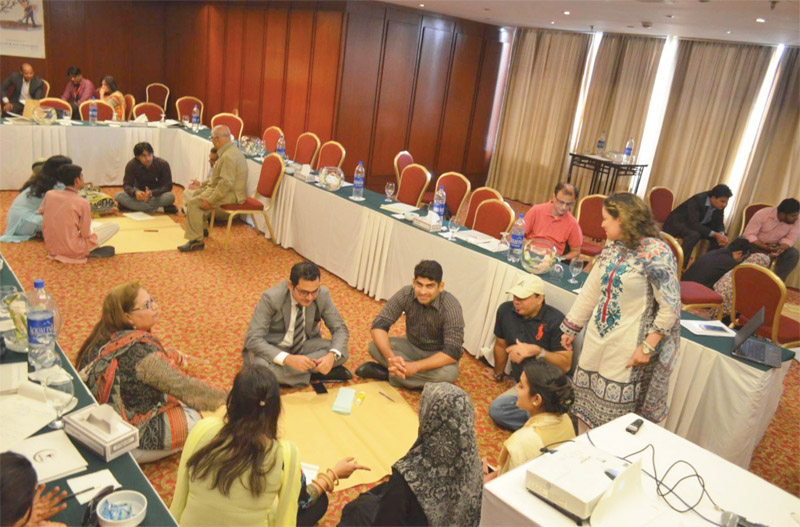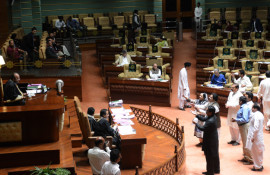
The common populace does not have access to meaningful mechanisms to gain access to information, redress grievances and to generally feed their input in the policy, planning and implementation processes of institutional governance. A positive service provider and service receiver relationship is not present.
Social accountability tools are used to tackle this problem, which strengthen the ability of service users and civil society groups to demand greater accountability from service providers. They are designed in a way that beneficiaries of a project or service have an enabling mechanism to have a greater say in the planning and implementation process and also that the resulting projects and services are managed in a transparent manner with due regards to the importance of social accountability.

Social accountability tools are designed differently with varying scope and nature of implementation. Some well-known social accountability tools include citizen report cards, community score cards, right to information and freedom of information.
The citizen report cards, for example, are applied with a wider scope, capturing public perception on services of a particular public service institution. The method gains feedback through the collection of rated sample surveys on various aspects of service quality. In 2010, Karachi Water and Sewerage Board became the first public utility collaboration in Pakistan with Water and Sanitation Programme of the World Bank to conduct a citizen report cards process to document public perception on its services to help in its institutional reform process. The survey was conducted in 9 out of Karachi’s 18 towns.
Meanwhile, the community score cards process is a community-based monitoring tool to exact accountability and responsiveness from service providers at a basic service level; a government school, a basic health care unit, etc. By linking service providers to the community, citizens are empowered to provide immediate feedback.
The process of conducting the score cards first involves preparatory ground work which involves collecting all relevant information of the target service as it relates to the organisational structure and the services and entitlements due to the citizens. In the end, an action plan matrix, developed in joint consultation between community and service providers, lays the groundwork for collaborative action for improving services.
Then there is the social accountability tool of freedom of information. It is enforced in Pakistan, both at the federal and provincial levels. It involves a clearly laid out process whereby a citizen can demand information on any aspect of government service and in a stipulated time period, the relevant institution is obliged to respond. However, there is a concern that there are serious shortcomings in the enforcement mechanism. There is limited public awareness about its existence, with the result that minimal applications are being filed. When applications are filed, there is a general trend documented by civil society groups of non-provision of the information by the government departments.
But social accountability tools can yield no meaningful results if applied on a one-off basis. For them to be viable and contributory to improving government functions, they have to be owned, institutionalised and sustained by our systems and institutions of governance. It is only then that they can be linked with the setting of effective benchmarks, indicators for measuring service trends and developing performance improvement plans that are both backed by well researched data and provided the required public legitimacy through active citizen involvement.
The writer is an urban planner and runs a non-profit organisation based in Karachi city focusing on urban sustainability issues. He can be reached at fanwar@sustainableinitiatives.org.pk
Published in The Express Tribune, December 29th, 2014.
1724760612-0/Untitled-design-(12)1724760612-0-405x300.webp)




1731842248-0/Untitled-design-(21)1731842248-0-270x192.webp)











COMMENTS
Comments are moderated and generally will be posted if they are on-topic and not abusive.
For more information, please see our Comments FAQ